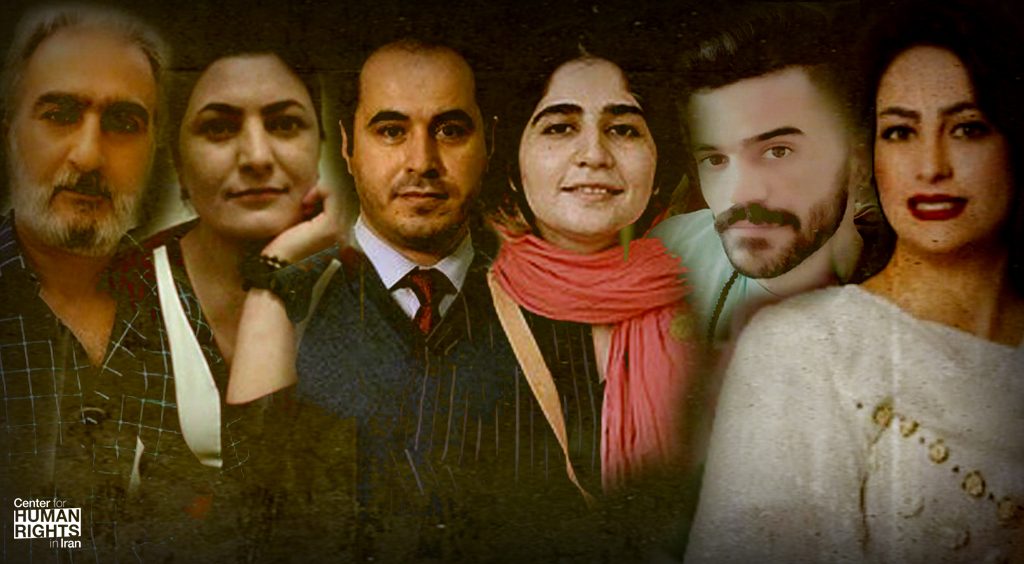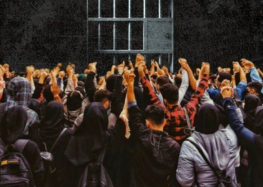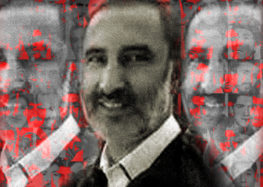Denial of Medical Treatment for Ailing Political Prisoners in Iran Aimed at Crushing Dissent
 Continued Refusal to Provide Proper Medical Care Risks More Prisoner Deaths
Continued Refusal to Provide Proper Medical Care Risks More Prisoner Deaths
March 3, 2022 – The continued denial of proper medical treatment to ailing political and civil rights activists in Iran is setting the stage for deliberate crimes against the many political prisoners in the country, including Sepideh Qoliyan, Soheila Hejab, Zeinab Jalalian, Arsham (Mahmoud) Rezaee, and Abbas Vahedian Shahroudi.
“These activists represent the voices of many Iranians, which the Iranian government is trying to silence,” said Hadi Ghaemi, executive director of the Center for Human Rights in Iran (CHRI).
“Iran’s State Prisons’ Organization and judiciary chief are responsible for the lives and safety of all prisoners,” he added. “Yet they are deliberately subjecting unjustly jailed political prisoners to life-threatening conditions in collaboration with security agencies.”
Fears for the lives of the activists are heightened by the fact that at least two political prisoners have already perished in Iranian state custody in the first few months of 2022 after being denied urgently required medical treatment: Baktash Abtin and Adel Kianpour.
CHRI calls on the international community, including the U.N. High Commissioner for Human Rights, the Human Rights Council, the special rapporteur for human rights, and all Member States to demand that the Iranian authorities provide immediate and full treatment for all prisoners, especially political prisoners who have long been targeted for denial of medical care.
In particular, CHRI urges the international community to demand that ailing prisoners be immediately released for full care in proper medical facilities.
Political Prisoners at Risk of Grave Illness or Death without Immediate Action
Following is a timeline of recent events regarding the imprisoned activists mentioned above, all of whom continue to be denied proper medical treatment despite serious ailments.
On February 24, 2022, political activist Soheila Hejab fell seriously ill and lost consciousness after suffering from untreated COVID-19 symptoms, and was taken from a penitentiary in Kermanshah, western Iran, to a hospital. The concern for her has been compounded by the fact that her condition and location are unknown.
On February 26, Abbas Vahedian Shahroudi, a teacher and civil rights activist imprisoned in Mashhad, northeast Iran, was taken “half conscious” from Vakilabad Prison to a hospital for a few hours and returned to prison without sufficient treatment, tweeted his wife.
On February 27, civil rights activist Mahmoud (known as Arsham) Rezaee’s health worsened after three weeks on hunger strike to protest the rejection of his requests for medical furlough to receive treatment for a stomach infection and other serious ailments. His conditions remain untreated.
On February 28, journalist and civil rights activist Sepideh Qoliyan was coughing up blood after several hunger strikes along with severe COVID-19 symptoms in Evin Prison in Tehran. Researcher Navid Yousefian tweeted that prison authorities “refused to give her a [COVID-19] test and then when they did it a few days later, they wouldn’t tell her the result. Now they are taking revenge on her by refusing to grant her medical furlough.”
On February 29, political prisoner Zeinab Jalalian’s health significantly deteriorated in the Central Prison in Yazd, central Iran. During her imprisonment for the past 13 years, she has been repeatedly denied proper medical treatment despite suffering from kidney disease, pterygium (a vision-threatening eye condition), and asthma for years.
All these political prisoners have been charged with bogus crimes and convicted of unfounded national security crimes without due process. CHRI is deeply concerned for their lives and well-being and urges the Iranian authorities to immediately release them to guard against more preventable deaths in Iran’s prisons.
Meanwhile, civil rights activist Hossein Ronaghi, who lost a kidney due to denial of medical care during his imprisonment in 2011, was arrested after criticizing a bill aimed at further restricting access to the internet on February 22, 2022. He remained on hunger strike in detention until his release on March 2. Ronaghi was released from his previous imprisonment in 2016, after Iran’s state medical examiner determined he was physically unfit for incarceration.
The UN has expressed serious concerns over Iran’s continued denial of appropriate healthcare to detainees, which violates the UN’s Standard Minimum Rules for the Treatment of Prisoners.
Read this article in Persian






